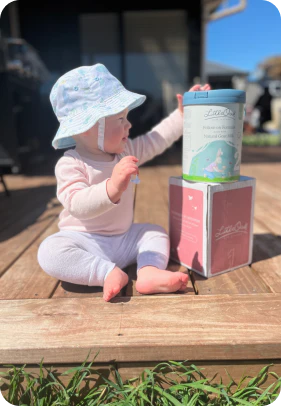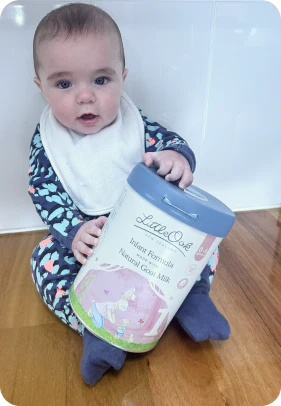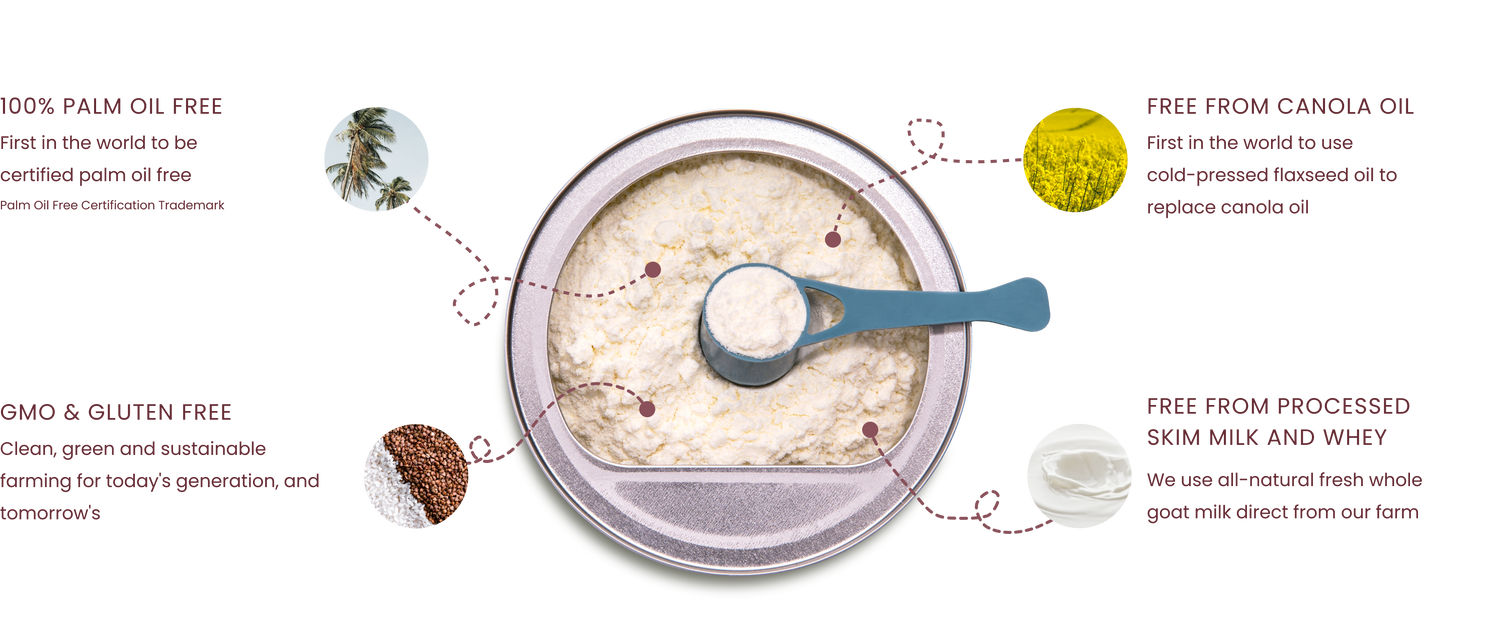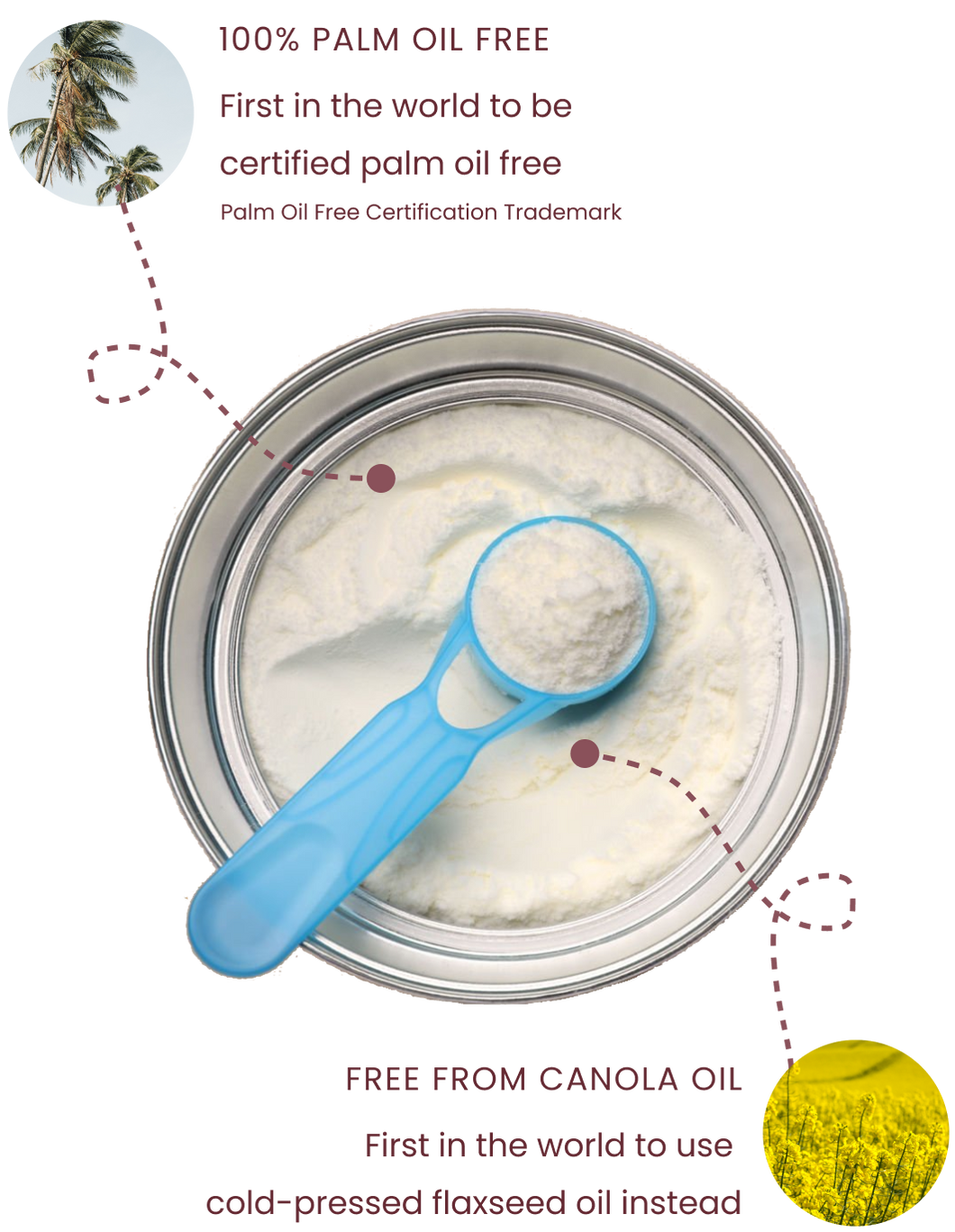Reflux is one of the key challenges parents can face as they navigate feeding. While it is a common part of infancy and most babies grow out of it by the time they turn one, it doesn’t make it any easier to navigate. Read on to learn more about the symptoms of reflux – plus some little tips to help.
What are some symptoms of reflux?
According to the Royal Children’s Hospital (RCH) Melbourne, it is common for babies with reflux to vomit milk, especially after feeds, but otherwise remain healthy and well. Other symptoms of reflux include feeding difficulties, poor weight gain, chronic asthma or a swollen, irritated oesophagus. In some instances, reflux can lead to more serious symptoms and complications, such as gastro-oesophageal reflux disease (GORD). If you suspect your baby has GORD, we recommend seeing a doctor immediately.
Is reflux a sign my baby has an allergy to cow’s milk or soy milk?
The RCH also noted that some infants who have severe reflux may have an allergy to a milk protein. The most common proteins that babies are allergic to are cow's milk and soy. If your baby is fussy during feeding or has experienced symptoms of reflux, it could be time to consider a more gentle and natural alternative.
What can I do to reduce reflux?
As parents, we’re always looking for simple yet effective solutions to ease the discomfort of reflux in our babies. These small adjustments at home might make feeding and settling more comfortable for your baby.
-
Hold your baby upright after feeds: Keeping your child positioned upright for about 30 minutes after feeding allows for gravity to help keep the milk in their tummy. Try to avoid bouncing or jiggling your baby while food is still settling.
-
Offer smaller, more frequent feeds: Try feeding your baby a little bit less than usual if you’re bottle feeding or cut back a little on nursing time.
-
Burp your baby often: It’s important to burp your baby gently during and after feeding to release any trapped air that is built up in your baby’s stomach.
-
Safe sleeping position on their back: The back is the safest position for a baby to sleep on. Always put your baby down on their back to sleep, even if they have reflux.
-
Check the bottle and teat size: During feeds, make sure the teat is always filled with milk to prevent your baby from air gulping. Be sure to also avoid teats with large holes, as milk may flow too quickly.
Could goat’s milk formula help my baby’s reflux?
If you are already using cow’s milk formula, LittleOak may be a suitable alternative for your baby. In fact, new research supports what we have long known: goat milk formulas are not only a beautiful, nourishing option for children, but may also offer benefits for digestion and infant gut health compared to cow milk formulas.
Goat milk naturally contains the A2 protein and is lower in lactose than cow milk, making it significantly easier for babies to digest. It also contains naturally occurring oligosaccharides (prebiotics) that nurture the good bacteria in your baby’s gut. Closer to nature, these gut-loving prebiotics are much more similar to those found in breast milk compared to cow milk.
Reflux can be challenging to navigate, especially when your little one is experiencing feeding difficulties, slow weight gain, or prolonged discomfort. Our CareTeam is here to support you every step of the way, so if you have any questions or need guidance on your feeding journey, please don’t hesitate to reach out. We are always here.
...
LittleOak has been nourishing children for many years and feeds millions of infants, babies and children across the globe each and every day, in countries such as Australia, New Zealand and Singapore. In the US, we’re proud to have our FDA compliant Toddler Milk available for families.



























